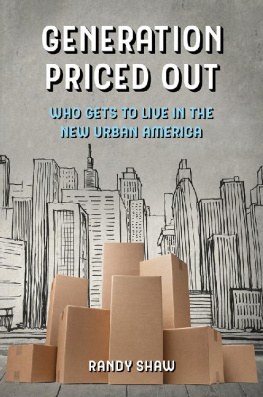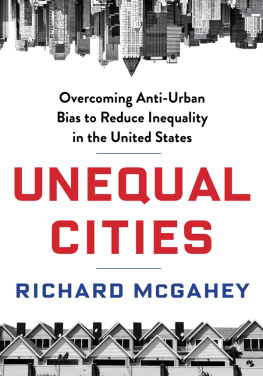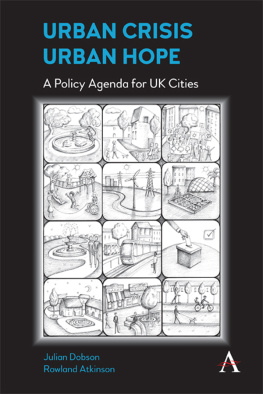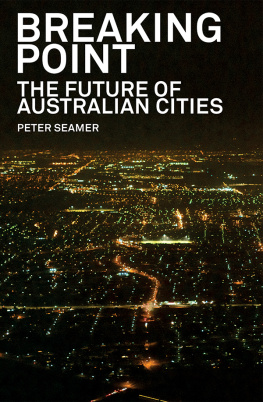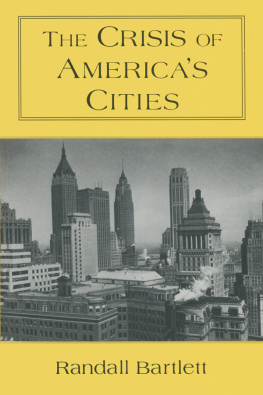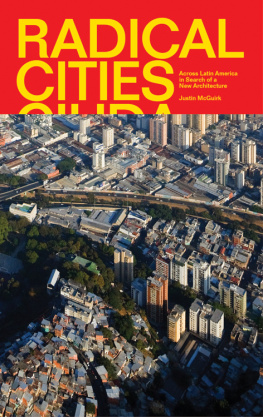ACKNOWLEDGMENTS
This book emerged from a phone conversation I had with my longtime University of California Press editor Naomi Schneider on the day following Oaklands Ghost Ship fire. We got to talking about the tragedy of young artists living in dangerous housing due to the high cost of Bay Area rents. She asked if I were interested in writing a book about a generation priced out of big cities. This is the result.
Thank you to everyone who gave their time to be interviewed for this book. I particularly appreciate those who shared their personal stories of how they have been impacted by eviction, displacement, and/or otherwise being priced out. Thanks to the elected officials who took time to talk: Austins Gregorio Casar, Minneapoliss Lisa Bender, New York Citys Margaret Chin, and San Franciscos then-Mayor Ed Lee. Lee died suddenly on December 12, 2017. I spent years talking housing policy with him and regret that he will not get the chance to read this book.
My Tenderloin Housing Clinic colleagues Raquel Fox and Steve Collier offered insights on their cases, and Stephen Booth provided valuable feedback. THC attorney David E. Tchack provided invaluable help with translation for interviews in Austin and Los Angeles. THC paralegal Cynthia Price formatted my text into a manuscript and created the index. My longtime friend and THC co-founder and current board president Chris Tiedemann provided valuable feedback on chapters, as did former THC community organizer Rio Scharf. My wife, Lainey Feingold, reviewed more chapters than anyone and significantly improved the book.
Rick Jacobus was the first person I met with to discuss Generation Priced Out. He offered valuable insights and suggested cities to write about. Jerry Jones lined up tenants for me to talk to in Los Angeles. Heather Baker and Angela Ryan graciously shared their experiences with me about the Oakland artist housing scene. Shoshana Krieger, Victoria Jara, and Stephanie Trinh went the extra mile to get me people to interview in Austin, as did Celia Weaver for Crown Heights and Nick Licata for Seattle. Tyler Anderson connected me to the mariachis facing eviction in Los Angeless Boyle Heights. Sam Moss connected me to Pete Gallegos for my interview on San Franciscos Mission District, and Laura Loe linked me to YIMBYs in other cities. Sam Dodge put me in touch with his family in Seattle, and Erin House connected me to a spokesperson for Seattle for Everyone. AnMarie Rodgers, Tammy Hung, Denise Pinkston, Roland Li, Todd David, and my old pal Joseph Lindstrom provided helpful information. I also benefited hugely from years of bouncing housing ideas off of Mayor Lees top housing advisor and my former co-worker, Jeff Buckley.
Stories by Mike Rosenberg of the Seattle Times and too many other reporters to name were enormously helpful. The contributions of these reporters can be seen throughout the text and endnotes.
As always, this book could not have been written without the support of my wife, Lainey Feingold. She and my children, Anita and Ariel Feingold-Shaw, create the stable foundation that allows a writing life. I also thank my father-in-law, Saul Feingold, for a lifetime of encouragement of my work.
Introduction
When Heather Baker walked into the Oakland warehouse known as the Ghost Ship in November 2016, it looked like a gypsy dream. The artist live-work space was filled floor to ceiling with furniture and art projects. A large two-story open space was the setting for regular weekend concerts. A friend had just moved into the building and knew that Baker was looking for cheap housing. Since she was an artist he suggested she visit the Ghost Ship and check it out.
Baker had lived in Oaklands Temescal neighborhood through the 1990s, paying $725 for a large one-bedroom apartment with a garden. After attending Oaklands Mills College she left the city in 2000, returning sixteen years later. Baker came back to a dramatically changed city. Rents had more than doubled for apartments that were not as nice near her former home. She discovered legal live-work housing was way more expensive than apartments. The Ghost Ship was cheaper because it was not legal to live there.
Despite the appeal of the low price, Baker decided not to move into the Ghost Ship. She instead accepted an offer to stay in a room in a legal live-work space while she looked for a permanent home. A month later, the Ghost Ship was engulfed in flames.
On December 2, 2016, at 11:20 p.m., when the Ghost Ship was packed with musicians and concertgoers, a fire broke out. Thirty-six people were killed, all but one visitors to the warehouse for the evenings music. All of the residents were displaced. The friend who had suggested Baker consider moving into the space lost all his possessions in the blaze. Another friend jumped out of a second-story window and survived.
It seemed impossible that so many talented and creative young people could have their lives cut short by attending a concert in a building that lacked legally required fire exits. In the search for answers as to how a warehouse could openly house residents and hold public events without the legal right to do either, one theme emerged: Oaklands young, upcoming creative class was living in unsafe buildings because their generation had been priced out of safe and affordable housing.
Media headlines on the tragedy spoke volumes: Ghost Ship Tragedy Puts Focus on Plight of Oakland Artists Dealing with Soaring Bay Area Housing Costs; Rising Prices in Oakland Push Artists into Risky Housing; After a Tragedy, Reckoning with Oaklands Affordability Crisis; Housing Crisis, Not Ravers, Is Responsible for the Oakland Fire; and Take Note, California: Oakland Tragedy Shows the Cost of Too Little Housing Construction. Like New York Citys Triangle Shirtwaist fire of 1911, which killed 146 workers and brought pressure for workplace protection for sweatshop workers, the Ghost Ship tragedy highlights the housing affordability crisis afflicting many of the nations cities.

